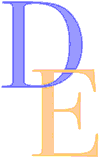Documentary Editing, Association for

Documentary Editing: Journal of the Association for Documentary Editing (1979–2011)
Date of this Version
2011
Document Type
Article
Citation
Documentary Editing: Journal of the Association for Documentary Editing, Volume 32: 2011 ISSN 0196-7134
Abstract
The three articles that follow—by Elizabeth Lorang, Amanda Gailey, and Wesley Raabe—highlight challenges and opportunities faced by editors who address non-canonical texts.1 These essays, while commenting on individual projects, also help narrow the gap separating the disciplines of literary studies and documentary editing. That is, in the past few decades in literary studies, a great deal of attention has been directed toward previously neglected writers. This work—and the debates it has engendered—is contributing to a more complex and multi-faceted sense of our cultural history. Remarkably, full-scale editorial work has barely addressed our altered intellectual landscape.2 Most work by editors has focused on editions of larger-than-life historical and literary figures. The collected edition of a major writer or historical figure has been central to—at times it can almost seem the defining undertaking of—documentary editing. Yet if we value a rich and wide-ranging understanding of our cultural past, we need to look beyond the most famous writers and historical figures.
Included in
Digital Humanities Commons, Other Arts and Humanities Commons, Reading and Language Commons, Technical and Professional Writing Commons


Comments
© 2011 The Association for Documentary Editing. Used by permission.